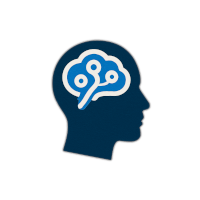Natural Language Processing
advanced
Retrieval-Augmented Generation (RAG)
An approach that enhances language models by retrieving relevant information from external sources before generating responses.
Detailed Explanation
Retrieval-Augmented Generation is a technique that combines information retrieval with text generation to enhance the capabilities of large language models. In RAG systems, when a query is received, relevant documents or information are first retrieved from a knowledge base. This retrieved information is then provided as additional context to the language model, which uses it to generate more accurate, up-to-date, and factual responses. RAG helps address limitations of LLMs such as hallucinations, outdated knowledge, and limited context windows by grounding the model's responses in external, verifiable information.
Examples
- Question-answering systems with external knowledge
- Chatbots with access to company documentation
- Research assistants with citation capabilities
Tags
information retrieval
knowledge base
context augmentation
Related Terms
- Vector DatabaseSpecialized databases designed to store, index, and query vector embeddings efficiently.
- EmbeddingDense vector representations of data that capture semantic meaning in a form usable by machine learning models.
- Large Language Model (LLM)Neural network models with billions of parameters trained on vast text corpora to understand and generate human language.
